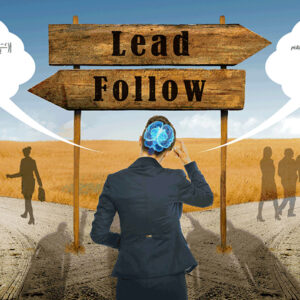
Since almost a decade ago, social networks became the global phenomenon that we know so well today, the issue of loneliness and social isolation has established itself as a matter of undisputed and very wide interest.

On the one hand, there was the fear of migrating to digital environments of extraordinarily large relational forms. On the other hand, that of an increasingly widespread inability to develop a healthy relationship with oneself, ensuring spaces for reflection free from continuous external stimuli. In all of this, a question emerged that foreshadowed a paradox: were we becoming increasingly isolated and, at the same time, increasingly unable to isolate ourselves?
For some, this is precisely what sanctions the birth of a collective problem: the moment in which a word is found that identifies it precisely. And there is no doubt that many, when for the first time they heard about FOMO (Fear of missing out), experienced that very particular feeling typical of the moments in which you discover the exact words to define your feelings.
It’s like a legitimacy statement: if it’s happened to other people as well, then that means it’s real, and if it’s been codified, then it must also be pretty common. At this point, the reference to popular knowledge is almost obligatory: “ Mal comune, mezzo gaudio ”. And this explains the relief that comes from the tongue.
FOMO, perhaps there is no need to explain it, is the fear of being left out, of missing out on something, of not being where you should be, or not having seen, read, or heard the things you should have seen, read, heard, if only because everyone else did. It is a true form of social anxiety fueled by the constant connection ensured by social networks. In a self-perpetuating mechanism, it induces this constant connection: to be sure you are not missing out on anything; it is essential to know everything it’s happening.
The consequences of a system of this type are obvious and there for all to see: when you are alone, the temptation to direct your gaze outwards (but lowering it to the screen of a smartphone) is irresistible. And even if you manage to avoid accessing Instagram, your thoughts are increasingly rarely concentrated on what you are doing and rarely on yourself. Result? Being alone is a prospect that we look at today more than ever with fear and apprehension.
When and why solitude is good for you
However, carving out time to be alone is a gesture that a growing number of scholars are underlining the importance of, even going so far as to argue that dedicating time to yourself, and only to yourself, is as essential as working out regularly and respecting a balanced diet.
Thus, with the numerous and dutiful alarms about the risks of social isolation, exhortations of the opposite sign are also emerging: that solitude is, in many cases, a healthy choice.
In an article published in The Atlantic magazine, the American sociologist Jack Fong highlights how being alone is essential to trigger and develop an intense confrontation with oneself. But the advantages of solitude, Fong argues, go far beyond this: for example, to identify the elements of toxicity that inhabit the social context to which one belongs and then be able to fight them, it is essential to get away from them, periodically, at least for a while.
There are also numerous references to solitude as a useful means of stimulating creativity. From the artists’ biographies to studies on innovative thinking, opinion is almost unanimous: solitude, in its favouring contact with the inner world, is an indispensable element of creative work.
According to some, solitude is an important ally of intuition and focus. Its ability to lead to an “ active mental rest “allows the brain to operate completely free from distractions, even minimal or unconscious ones.
Furthermore, people used to spending time alone were, on average, more satisfied with themselves and their lives, more skilled in stress management and less prone to depression, demonstrating how much solitude is crucial for mental well-being.
Alone yes, but under conditions
If loneliness has so many benefits, then one wonders why social isolation is perceived and communicated as an often very serious problem.
The studies of Kenneth Rubin, a developmental psychologist at the University of Maryland, shed light on this apparent contradiction: to be healthy, beneficial and productive, solitude must “respect” certain criteria.
First of all, it must be a choice: solitude is only good if it is voluntary, and those who choose to isolate themselves to benefit from it must, in any case, have the possibility of returning to a social group when they wish. Furthermore, he must be capable of effectively managing his emotions and developing and maintaining positive relationships even outside his social group of reference.
From FOMO to JOMO
Keeping these parameters in mind, isolating yourself from time to time is a genuine choice of well-being. So much so that the author Anil Dash, in one of the most successful posts of his personal blog, thought of creating a word that indicated the exact opposite of FOMO, namely JOMO (Joy of missing out), the ability to appreciate the time spent alone, getting away from everything (even and perhaps especially from the smartphone) to cultivate one’s relationship with oneself.



